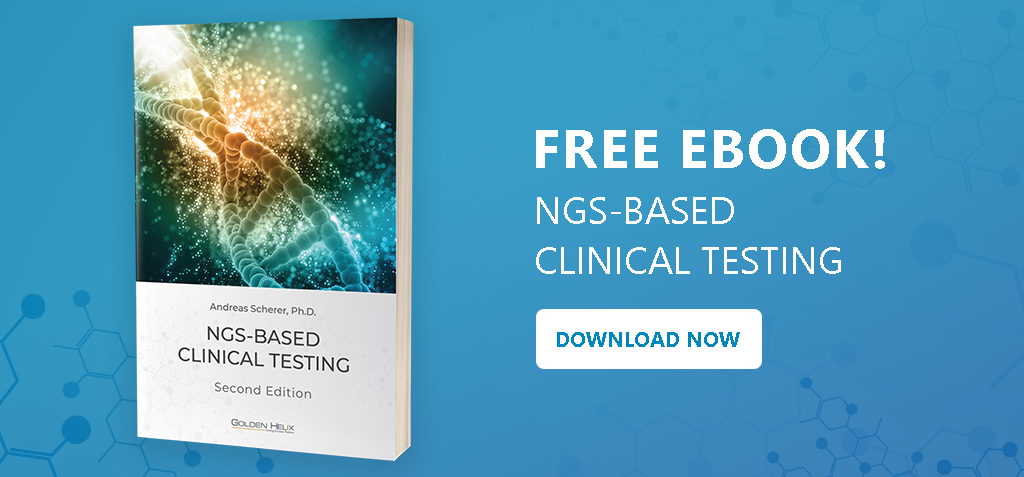
With a properly defined wet-lab and bioinformatics process, we are able to zero in on clinically relevant variants. How does a lab report on the outcome of their analysis? We find that most laboratories conduct their variant classification based on the guidelines formulated by the American College of Medical Genetics (ACMG) for inherited diseases. The ACMG guidelines for variant classification are regularly revised, so it’s important to stay abreast of new developments.
From our perspective, there is quite a variety of different reporting standards that we observe in practice for tumor and infectious pathogen diagnosis. The reporting on inherited diseases seems to be more consistent across the board. Typically variants are classified in the following way:
- Pathogenic
- Likely pathogenic
- Uncertain clinical significance
- Likely benign
- Benign
In a recent meeting in Washington DC among leading clinicians in this field, it was mentioned many times that certain findings can be deceptive. For example, a novel loss-of-function variant, which is obviously a very damaging mutation in a gene, with no known connection to the observed phenotype needs to be handled very carefully. Chances are that the severe mutation has in fact nothing to do with the disease. Typically, clinicians rely on reference databases such as the 1000 Genomes Project, OMIM and others to establish the clinical relevancy. Equally, it’s important for a lab to establish a database of past findings. It’s very likely that a lab with a focus on a particular disease category or a subset of a population has access to variant frequencies specific to the cross section of the community it is serving. Or, it might observe associations between variants and observed phenotypes for diseases that are not yet documented in standard public databases.
Reporting of Incidental Genetic Findings
Clinically significant genetic findings that are unrelated to the phenotype under investigation can occur when performing single gene, gene panel, whole exome or genome sequence analysis. However, limiting sequence analysis to a panel of genes that are relevant to the diagnosis of a particular disease state, for the most part, eliminates the potential for incidental findings. Without question, the analysis of exomes or genomes has a high chance for such findings which include the identification of variants relevant to autosomal dominant disease, carrier status for recessive diseases, predisposition to adult-onset dominant conditions (including cancer and neurodegenerative conditions) and drug response alleles, commonly known as pharmacogenetic markers…
To continue reading, I invite you to download a complimentary copy of this eBook below: